7 Deadly Sins of Investing for Beginners, Mistakes You Should Avoid
Successful Investor becomes wealthy by avoiding some of the most costly mistakes. Mistakes that they learn from experience and time.
Investing is the path where most of the top 10% make their wealth. And the secret of their success is by learning from others who are successful.
There are basically 2 ways to gain the experience required to know how to avoid investing mistakes.
- Smart Way: Learning the investing mistakes made by others and avoiding them.
- Painful Way: Make your own investing mistakes and learn from your own mistakes.
Although both ways allow you to learn from your mistakes, I will rather choose to learn from the smart way, which is to learn from the mistakes others made. I don’t really like pain that much. Do you not?
With my limited time in the world and resources (money), learning to invest in a smart way will allow me to become a successful investor faster.
“I have 2 rules for investing; Rule No. 1: Never lose money. Rule No. 2: Never forget rule No. 1.”
Advice from the investing legend, Warren Buffett
With that said,
Here are the 7 deadly sins of investing that beginner investors made.
Let’s Dive In!
7 Deadly Sins of Investing
There are many mistakes you need to avoid in order to become an investment legend like Warren Buffett. But of these hundreds of mistakes, here are the 7 worst mistakes you have to avoid at all costs.
Avoid these costly mistakes and be wealthier faster and easier.
1. Too Emotional
Never let your emotion take control of your actions. This is one of the worst investing mistakes that both beginners and professionals make.
Arguably, emotion is the No.1 killer for all successful investing.
In investing, there is generally 2 emotion that controls your actions:
- Fear: Makes you sell
- Greed: Makes you buy
If you are controlled by your emotions, you will sell at the wrong time due to fear. And buy at the wrong time due to greed.
Here is an example:
- When the market raise many beginner investors don’t want to lose out on all the gains and are greedy, thus they buy the stock at a high price.
- When the market is fall many beginner investors are afraid that they will lose all their savings, thus they sell all their holdings at a low price.
Letting your emotions take control of your actions causes you money, and more often than not, lots of money.
How to Fix
Know that price fluctuation is normal for all stocks. Some stock has huge fluctuation, while others fluctuate less. All stocks in general, over a long time, will return to the price at which it is supposed to be priced.
Father of all Value Investing, Benjamin Graham:
““In the short run, the market is a voting machine but in the long run, it is a weighing machine.”
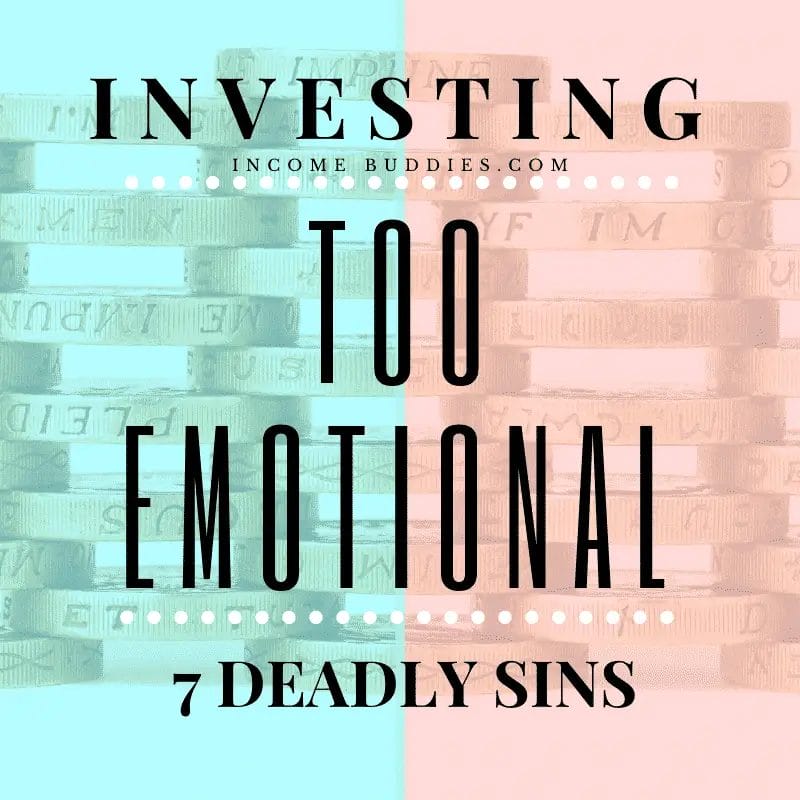
2. Not Understanding Your Investment
Understanding what your investment means helps to differentiate successful investors from normal investors. Successful investing needs research to get the right knowledge to make the right investing decisions.
Most beginners make the investment mistake, to invest in companies that they know nothing of. Somehow, they just hear about this company from a friend, or the barber they visit on the weekends. Someone said this is a good company thus, they put money into it.
Investing without knowing your investment is not investing, it is pure and simple gambling.
How to Fix
Successful investors don’t gamble their money. Successful investors only invest in stocks or companies which they know and understand.
Successful investors asked these questions before they buy that stock:
- Is the company doing well?
- Is the industry as a whole doing well?
- How does the company fair in comparison to the industry average?
- What is the financial health of the company look like?
- Is there any growth potential for the company?
- Is the company cheap now?
- Am I getting a deal?
Warren Buffett ask himself this question before he does his investing:
“Do I understand this company?”
Warren gave this advice when during one of his annual shareholder meetings:
“Invest in your circle of competence”
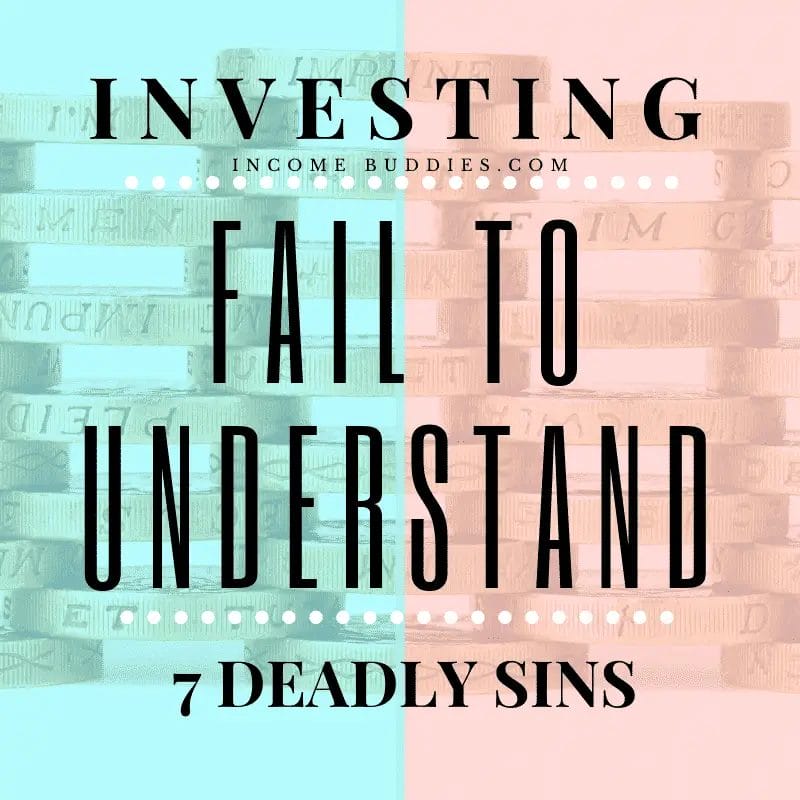
3. Falling in Love with the Company
You can fall in love with many things, but falling in love with a stock is not one of them. Because falling in love with stock will probably cost you your wallet.
Many investors including myself, often make the mistake of buying that stock and totally forget about it. (Silly mistake I made years ago, but now I track my stock portfolio with an excel I created)
The investors have somehow fallen in love with the stock and forgotten to check its fundamentals months after they buy the stock. And when the fundamental turn so bad that the stock fall like a brick, all might be too late.
How to Fix
Remember, investing is a game to make money where you invest in good companies with good financial numbers.
Keep track of all your stock purchase and check their financial numbers periodically. If the fundamentals of the company change for the worst, you may want to consider selling it and lock in the gains from your investment
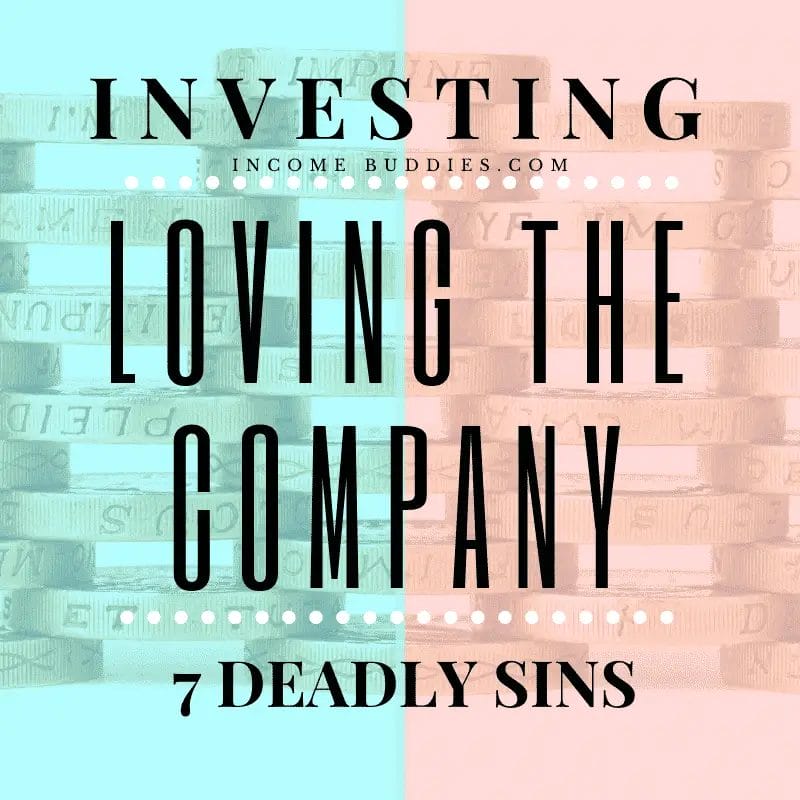
4. Diversify not Diworsefy
Almost all financial advice advocate diversification of your assets. It is sound advice to most beginner investors or people who just started their journey of investing. It is a way to lower the risk while getting a possible average return.
But there is a fine line between diversification and diworsefication.
Diversify is where you don’t put all your eggs in one basket, just in case something happens.
Diworsefy is basically a word, sort of invented by Warren Buffett that asks investors not to diversify their eggs into rotten baskets. If you diversify your investment into the rotten basket, that could actually put your investment at more risk.
Diworsefy = Bad Diversification
How to Fix
Diversification should be done properly. And in general, to properly diversify your asset, you may want to consider investing in non-related markets.
Some examples of the different markets are:
- Bonds
- Stocks
- Gold
- Real Estate
- Commodities
Proper diversification should invest in assets that give a low or exhibit an inverse correlation to the other investment.
For example:
- The stock market raises, the gold price will usually fall or keep stable
- Stock market fall, the gold price will usually raise or keep stable
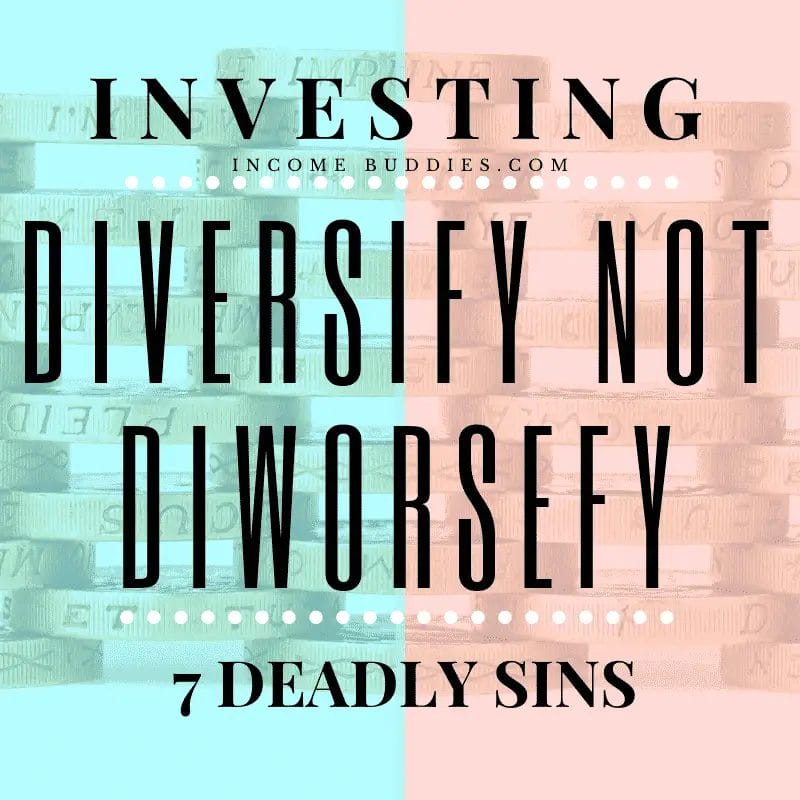
5. Mistaking Historic Return for Future Return
Historical return does not promise you the same future returns. A lot of factors will play a part when you are looking at the return of the funds or that stock.
Don’t blindly trust your investment adviser, because they tell you the average historical return of the U.S. stock market is approx 10% annually, and your return on the investment will be 10%.
Your investment return depends on these few factors:
- When did you buy that investment?
- How long have you been holding that investment?
- What industry did you invest in?
Buying the stock at the top of the market over a long bull run of 10% return per annual may give you a negative return the very next year when the market fall.
But in the next 5 years, it may raise again to give you a 5% or even a 15% annual return.
Historical return don’t represents the future return.
The general rule of thumb on investing:
- You invest at a great price
- You invest in great companies
- You invest in companies with great financial health
As for the return on the future of the company you invested in, it will largely be based on these and many other factors.
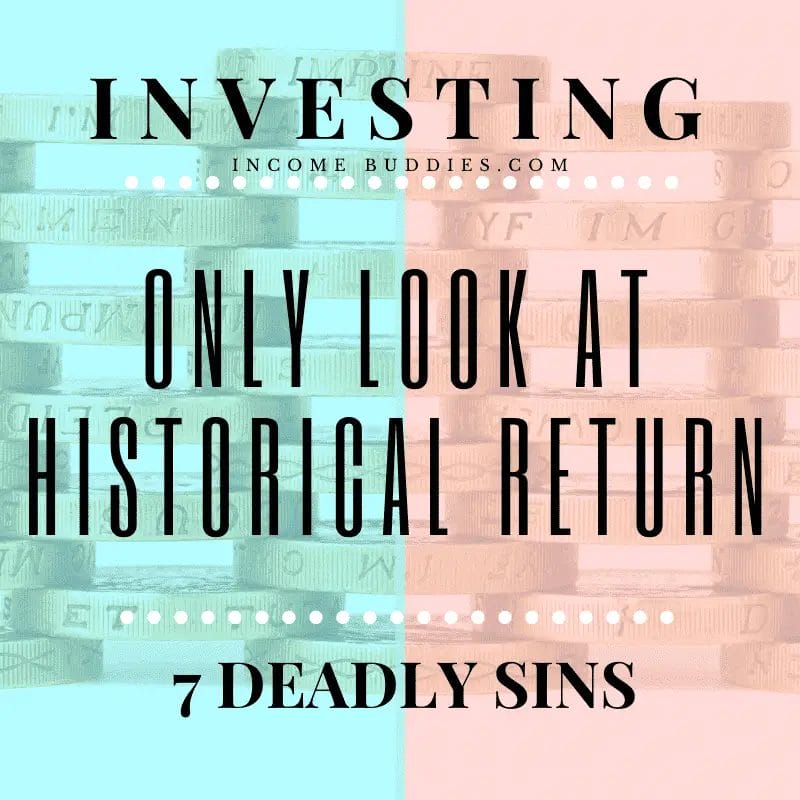
6. Fees Can Hurt
The fee is a silent killer that kills your return without you ever knowing. Investing fees can really hurt. A fee of 1% might not sound much and you through it is totally worth it if you can get a 5% or 10% return on your investment.
If you are investing $100,000 you will be just paying $1,000 in fees, right? It is just a small price to pay for that fat 5% or 10% return, right?
Wrong!
That 1% fee might just be what rob you of thousands of dollars by the end of your investment journey.
Example:
You invested $100,000 for 30 years with a 10% return and paying 1% per year in fees.
10% return of $100,000 compounded for 30 years.
You get $1,744,940.23 after 30 years of investing if without fees.
Because of 1% fees per year, your returns per year become 9% (10% return – 1% fees)
9% return of $100,000 compounded for 30 years
You get $1,326,767.85 after 30 years of investing if with 1% fees
Because of this 1% fees, you get $418,172.38 less in your bank! This is 31.52% less return on your investment!
Ouch!
Many mutual funds have fees that range from 0.5% to upwards of 5%. Be very careful when choosing what you invest.
Fees hurt your investment return.
How to Fix
The solution is simple.
Choose to invest in low-fee funds. The exchange-traded fund (ETF) is some of the best diversified, low fees investment vehicles you can actually choose to invest in. Often these funds have fees as low as 0.035% which saves you tonnes of money.
ETFs allow investors to combine the trading flexibility of a stock with the diversification and low costs of a mutual fund.
Vanguards have low-cost ETFs that have an expense ratio of as low as 0.035% to 0.07%.
The other solution is basically, to ensure the fees you are paying is as low as possible, where you feel it is justified.
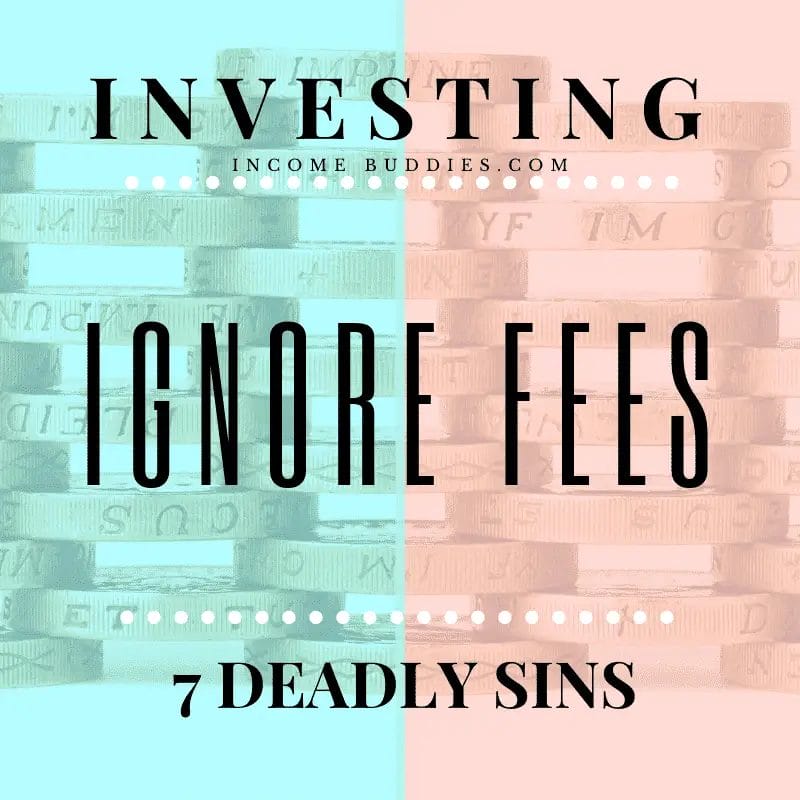
7. Not investing in your Financial Education
Failure to invest in your own financial education is the worst mistake that all beginner investors made. I know this simply because I am speaking from experience.
At the start of my investment journey, I fail to invest in my own financial education which causes me to lose my first pot of investment capital. The amount might not be a lot, but to me as a student studying in college. A thousand dollars is a lot of money.
Learning from my mistakes, I start to get interested in financial education and learn about investing and personal finance in general. IncomeBuddies.com is thus created to help you to avoid making the same mistakes that I made previously.
How to Fix
The No.1 tip of success by Warren Buffet is:
“Invest in Yourself”
We are always learning something every single day. Investing in learning something new, will only make you a wiser and better person.
Read our articles on investing and books from My Library, let’s learn from the experience of many successful people.
Investing in your financial education will be one of the best choices you make will make today.
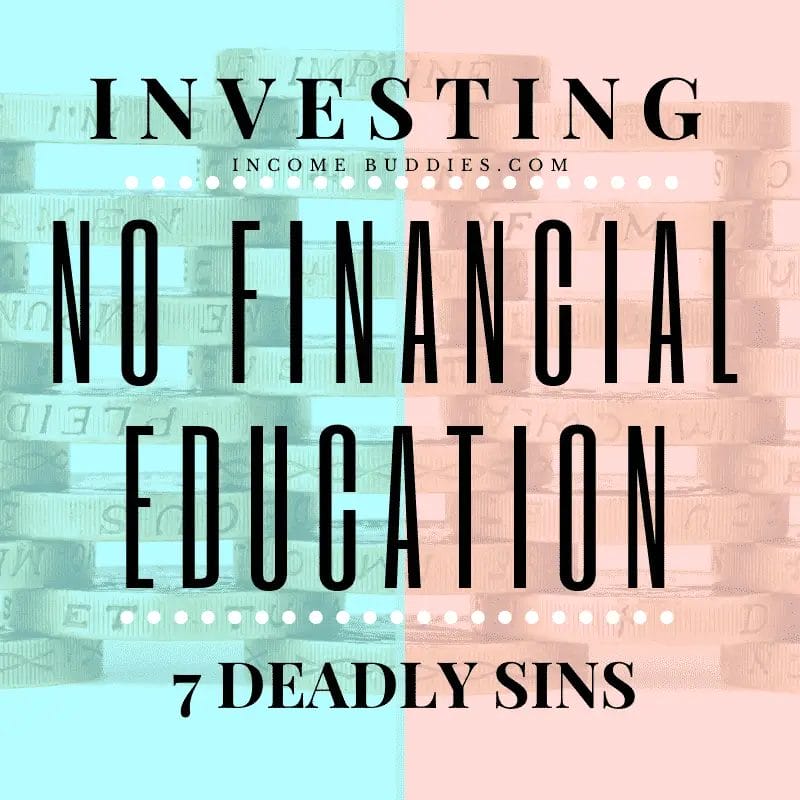
My Takeaway
Investing is a long journey where you learn from each and every experience. Mistakes can either be made by you or by others who are willing to share the mistakes made by them so that you can avoid making the same mistakes.
Learning these 7 deadly sins of investing for beginners will surely help you in your journey in becoming a successful investor.
But just learning from these mistakes is just a start to your path of lifelong learning.
“Education is a progressive discovery of our own ignorance.”
Will Durant
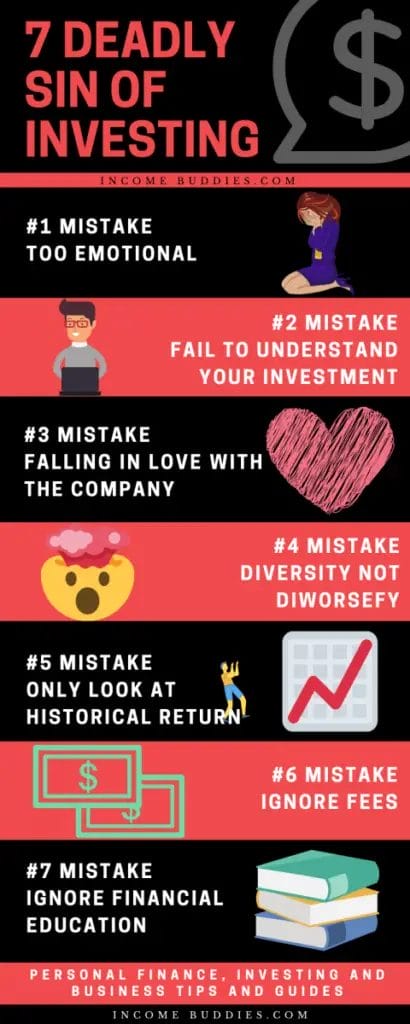
- Moomoo SG Promotion! $970 Worth of Free Stocks + Perks for New User | April 2024 Updated 🟢
- WeBull SG Promotion! Claim Up to SGD$10,000 FREE + $0 Platform Fee | April 2024 Updated 🟢
- 7 Online Brokerages vs Traditional Brokerages in Singapore: Making The Right Investment Choice
- How to Use Webull Singapore to Trade, Buy and Sell Stocks? (Beginner’s Guide)
- How to Use Moomoo to Trade, Buy and Sell Stocks? (Beginner’s Guide)
Join 900+ BUDDIES who are growing their wealth with our weekly Income Newsletter
Antony C. is a dividend investor with over 15+ years of investing experience. He’s also the book author of “Start Small, Dream Big“, certified PMP® holder and founder of IncomeBuddies.com (IB). At IB, he share his personal journey and expertise on growing passive income through dividend investing and building online business. Antony has been featured in global news outlet including Yahoo Finance, Nasdaq and Non Fiction Author Association (NFAA).

